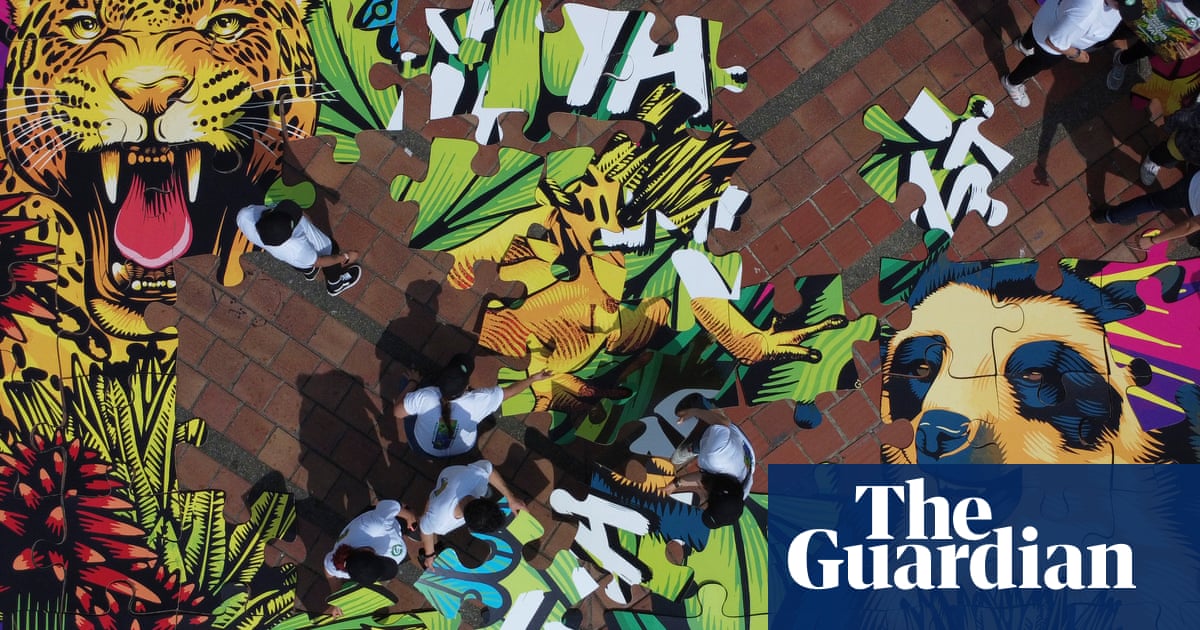German experts have long agreed that Michael Hulton, the sole surviving heir to an illustrious Jewish art collector forced to flee the Nazis, has a strong case for restitution. But after years of waiting, he’s running out of patience – and time.
Hulton, 78, is the great-nephew of Alfred Flechtheim, a pre-eminent cultural figure of the “Roaring Twenties” whose refined taste for the avant garde and infectious enthusiasm made him a tastemaker of early 20th-century Germany.

While Hulton has appealed successfully to German institutions for the return of works in Flechtheim’s collection in the past, the most valuable of the contested pieces are tied up in an increasingly baroque reform process that threatens to delay a ruling indefinitely.
Critics say Hulton’s long wait is symptomatic of a German restitution policy mired in red tape and foot-dragging, and that proposed changes due to be implemented next year represent verschlimmbessern: making something worse while attempting to improve it.
The pieces in question are an exquisite Picasso bronze bust and two prized paintings by Paul Klee, in the possession of the Bavarian state art holdings in Munich.
“Numerous museums and private collectors have recognised the sad fate of Uncle Alfred and demonstrated their clear commitment to undo the injustice our family experienced … and have returned my family’s stolen property,” Hulton said. “I want the Bavarian government to reverse their dishonesty to me and many other victims’ families, and I want them to do this now.”
Born in 1878, Flechtheim is credited with championing the work of Picasso, Braque, Kandinsky, Klee and Beckmann at his galleries in Berlin and Düsseldorf, introducing challenging modern art to a broader European audience. In the early 1920s, he founded the magazine Querschnitt (Cross Section), printing the work of Hemingway, Proust and Joyce often for the first time in translation. His open bisexuality and legendary parties at his elegant flat off the Kurfürstendamm celebrated the liberal, anything-goes zeitgeist of the Weimar Republic.
With the Nazis’ rise to power in January 1933, Flechtheim found himself in the crosshairs as part of the “Jewish-Bolshevik global conspiracy”. Posters condemning “degenerate art” featured images of Flechtheim in grotesque antisemitic caricatures.

“As an agent of French-dominated modernity … he became a Jewish scapegoat and a symbol for everything in modern art the Nazis despised,” Hulton said.
Under increasing threat, Flechtheim fled Germany in May 1933, winding up in London the following year, while parts of his collection were liquidated at rock-bottom prices or confiscated after the 1941 suicide of his wife, Betty, who had remained in Berlin. He died penniless in the UK in 1937. Several members of his extended family had their property “Aryanised”, or claimed by the Nazis, before they were sent to concentration camps.

As Alfred and Betty remained childless, descendants of their nephew Heinz-Alfred Hulisch, who emigrated to England and changed his name to Hulton, became his heirs. Art detectives and lawyers for Heinz-Alfred’s son Michael and his second wife, Penny Hulton, began the search for the scattered collection including the three works in Munich in 2008. But after years of waiting, Penny died in June this year aged 96.
A San Francisco-based physician, Michael Hulton has pressed on with the case, which has now become bogged down in Germany’s plodding restitution reform efforts.
Eight decades after the end of the second world war, Olaf Scholz’s centre-left-led government came to power in 2021 with a pledge to create a fairer approach to handing back Nazi-looted art after years of international criticism, outlining proposals that officials said could also be extended to the country’s vast colonial-era holdings from Africa.
This March, the federal government and 16 states approved reforms aimed at helping the descendants of Jewish collectors recover property, including the introduction of binding arbitration for deadlocked claims to replace an advisory commission often dismissed as toothless.
In its 21 years of existence, the commission has issued just over 20 recommendations of restitution, falling far short of Germany’s international commitments. Part of the problem is if one party refuses to go before the commission, there is no access for plaintiffs. Once they are established, the specially appointed courts of arbitration can be appealed to by one party alone for a definitive judgment.

Claudia Roth, the German culture minister, said at the time that Berlin aimed to implement the reforms before the end of 2024, calling the agreement a “big and important step forward” with “a very ambitious timetable”.
Too ambitious, as it turned out, providing in effect an excuse to put restitution cases on ice, even for increasingly elderly claimants. The arbitration plan has been kicked into the long grass over squabbling and now with a snap general election called for 23 February.
Stuart Eizenstat, the US secretary of state’s special adviser on Holocaust issues, has called Germany a “laggard” in art restitution. While organisations such as the Conference on Jewish Material Claims Against Germany have welcomed the drive for reform in principle, opponents say it has become mired in German federalism.
The Berlin lawyer Christoph Partsch has handled several restitution cases and was recently invited by parliament as an expert to give his opinion on the new law. He believes Germany needs root-and-branch reform of its approach, with more sweeping legislation if it hopes to clear the massive backlog. He notes that works held in private collections would remain beyond the reach of the law as it is now conceived.
“If Germany does not get this sorted by the end of the year, it will be a scandal and an international disgrace,” Partsch said.
Based on the evidence of Flechtheim’s ownership, the Bavarian state art holdings in 2023 recommended the restitution of the Picasso sculpture and a referral of the two Klee paintings to the advisory commission. However, the Bavarian government has blocked any further action since then, saying that Flechtheim’s ownership of the works in January 1933 could not be confirmed beyond a doubt.
Asked for comment, Bavaria’s culture minister, Markus Blume, said authorities would present the case to the court of arbitration “as soon as it is established next year”, calling the new regime a “binding, just and transparent system for restitution”.

Photograph: Sueddeutsche Zeitung Photo/Alamy
A spokesperson for the state art collections said the three works were currently in storage “as we are aware of their problematic provenance, which is also an important reason not to display them at present”.
The respected news weekly Die Zeit called the Bavarian refusal to restitute the pieces “particularly egregious” but noted it was only the tip of an iceberg amounting to “thousands of works in German-speaking European institutions worth hundreds of millions of euros”.
Hulton finds the latest impasse infuriating. “Germany, which includes Bavaria, promised to improve the German advisory commission on looted art,” he said. “Actually, they did quite the opposite, by shutting them down and by proposing arbitration instead which may never see daylight, at least not in the foreseeable future.”
The historian Julius Schoeps, the head of Berlin’s Moses Mendelssohn Foundation which promotes the study of Jewish history and culture, blasted the stalling of the reform process as “shameful”. Given the advanced age of the claimants, it is “the end of all restitution efforts”, he said. “As I always say, it is the last act of Aryanisation.”
Hulton, a longtime Aids activist, has poured the windfall from other restituted paintings among his great-uncle’s treasures into HIV research. He estimates he has donated $1.4m (£1.1m) to the Gladstone Institutes’ HIV research division and a further $1.1m to medical research at the University of California-San Francisco, on top of contributions to other charities.
Hulton and other descendants say that whatever improvements the German reform promises, it has turned into an excuse for “self-serving denial” on the part of the authorities and institutions that have time on their side.
After 15 years of attempting to get Bavaria’s government “to recognise the persecution, suffering and spoliation of my Jewish family during the Holocaust, I am hitting a wall”, Hulton said.

 2 months ago
40
2 months ago
40













































